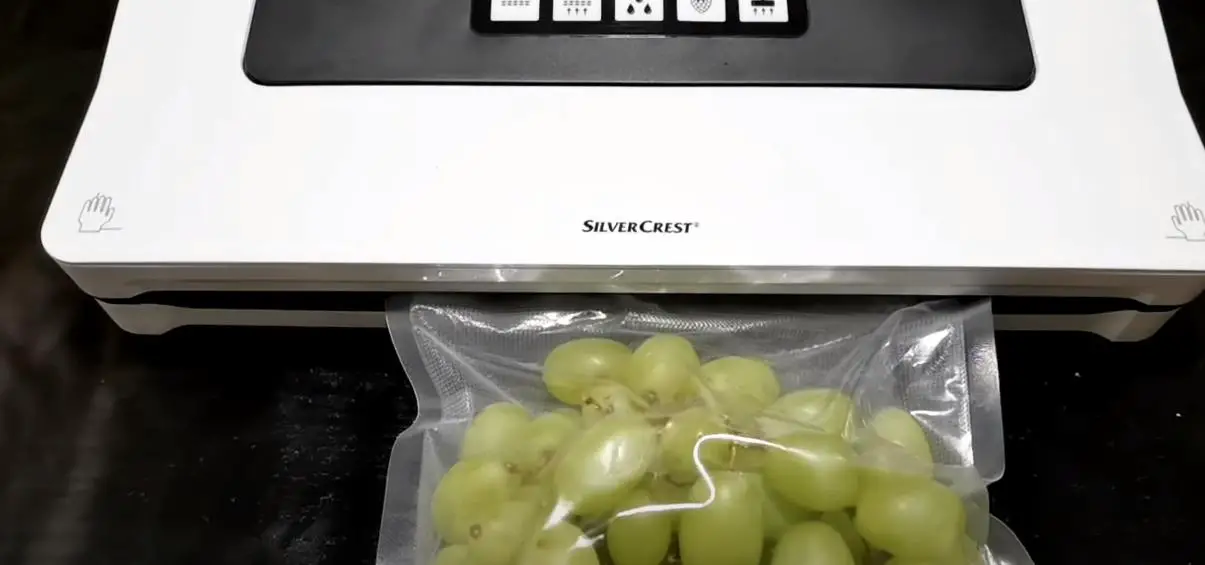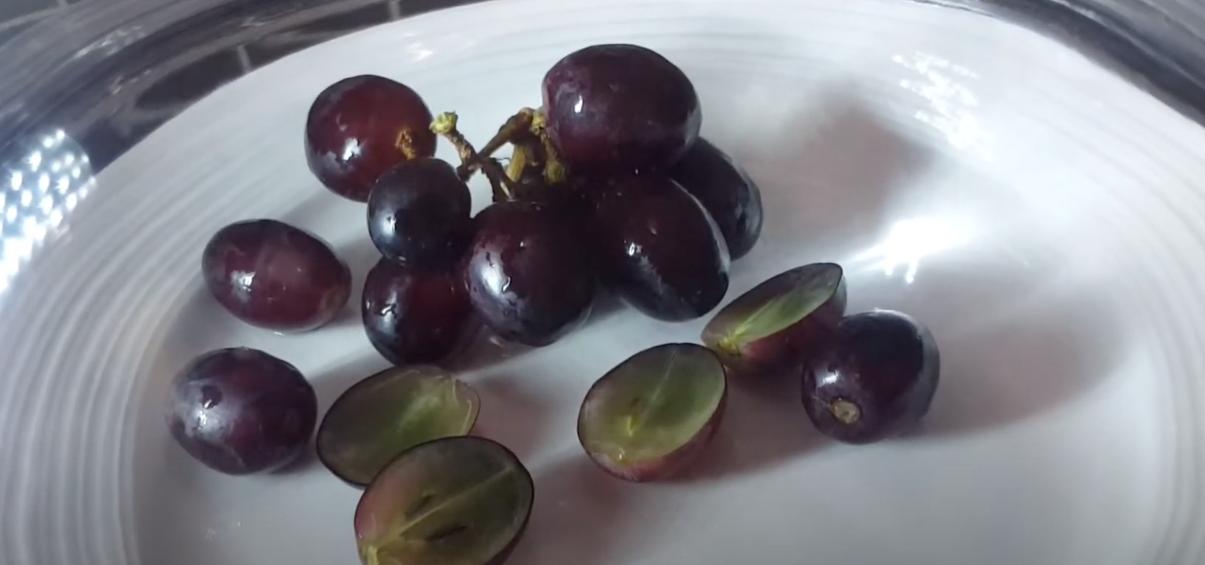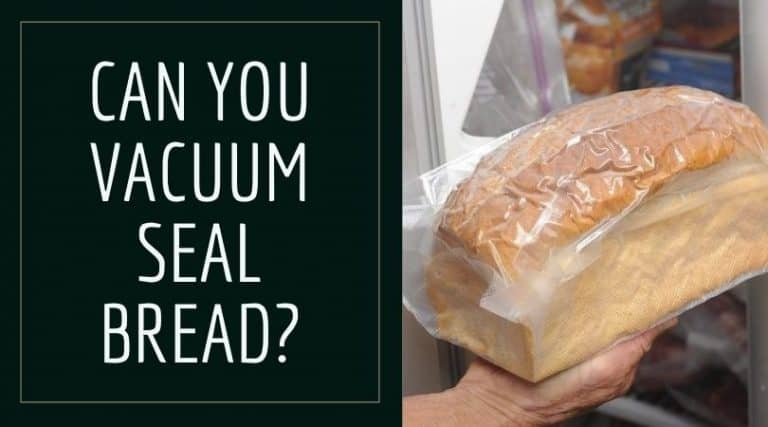Can You Vacuum Seal Grapes? (Know The Details!)
Key Takeaways
- You can vacuum-seal grapes. This is a great way to keep them fresh and prevent them from going bad. Vacuum sealing also helps to preserve the flavor and quality of the grapes.
If you’re looking for a way to keep your grapes fresh for longer, vacuum-sealing them is a great option.
Vacuum sealing prevents air and moisture from reaching the grapes, which can cause them to spoil.
Plus, it’s an easy way to store grapes so they take up less space in your fridge or pantry.
But before you start vacuum sealing your grapes, there are a few things you should know.

Can you vacuum-seal grapes?
You may not have realized it, but you can vacuum-seal grapes. This means that you can store them for a longer period of time without having to worry about them going bad.
Vacuum sealing is a great way to keep food fresh, and it can be used for a variety of different fruits and vegetables.
If you’re looking for a way to extend the shelf life of your grapes, vacuum sealing is definitely worth considering.
What are the benefits of vacuum-sealing grapes?
If you’re a fan of fresh grapes, you may be interested in learning about the benefits of vacuum sealing them.
Vacuum sealers work by removing all oxygen around the food item and then keeping the vacuum-sealed package airtight, which helps preserve the food.
This can be especially helpful for grapes, as they can stay fresh for several weeks when vacuum-sealed.
There are a few other benefits to vacuum-sealing grapes as well. For one, it can help prevent them from getting squished or bruised if you need to transport them somewhere.
And if you live in an area with high humidity, vacuum sealing can also help keep your grapes from molding.
So if you’re looking for a way to keep your grapes fresher for longer, consider investing in a good quality vacuum sealer.
How do you vacuum seal grapes?
Vacuum sealing is a great way to keep grapes fresh and prevent them from going bad. It’s also a great way to store grapes for long periods of time. Here’s how you vacuum seal grapes:
You’ll need a vacuum sealer and some freezer bags. Place the grapes in the freezer bags, leaving space at the top of the bag. Insert the tip of the vacuum sealer into the space at the top of the bag and turn on the machine.
The vacuum sealer will remove all of the air from the inside of the bag and seals it shut.
That’s it! Your grapes are now sealed and will stay fresh for much longer than if they were not sealed.
What foods can’t be vacuum sealed?
A vacuum sealer is a great way to preserve food and keep it fresh for longer. However, there are some types of food that cannot be vacuum sealed. These include soft cheeses, raw onions, garlic, and cruciferous vegetables.
Soft cheeses can spoil quickly when exposed to air, so it’s best to consume them within a few days of opening.
Raw onions and garlic also have a strong odor that can permeate other foods in the fridge.
And finally, cruciferous vegetables like broccoli and cabbage release gas as they decompose which can cause other foods to spoil faster.

Why is it important to know how to properly vacuum seal food?
Vacuum sealing is a great way to preserve food and prevent bacteria from growing. However, it is important to follow some guidelines to ensure that your vacuum-sealed food will be safe and of the best quality.
Here are some tips for proper vacuum sealing your food:
- Check the seal within 24 hours: It is important to check the seal on your vacuum-sealed food within 24 hours. This will ensure that the seal is tight and there are no leaks
- Freeze flat: When you freeze your vacuum-sealed food, make sure to lay it flat so that it takes up less space in your freezer. This will also help keep the quality of your food better for longer periods of time
- Follow storage instructions: Be sure to follow any storage instructions that come with your vacuum-sealed foods. These instructions are designed to help keep the quality of the food as high as possible for as long as possible
How long does food usually last when sealed?
Vacuum sealing is a great way to prolong the shelf life of your food. Most vacuum-sealed foods will last 2 weeks in the fridge, which is much longer than if they were not sealed.
This means that you can save money by buying in bulk and not having to worry about your food going bad before you have a chance to eat it.
Is there a difference in taste for fruits and vegetables that have been vacuum sealed compared to those that haven’t?
When it comes to vacuum sealing, there is no difference in taste for fruits and vegetables.
Vacuum sealing preserves food by removing the air from around it, which can cause spoilage. This process can help keep fruits and vegetables fresh for a longer period of time.
Do all fruits and vegetables need to be refrigerated after being vacuum sealed?
Most people believe that vacuum sealing their fruits and vegetables will keep them fresh for a longer period of time.
However, not all fruits and vegetables need to be refrigerated after being vacuum sealed. In fact, some fruits and vegetables can actually last longer when they are not refrigerated.
One reason why some fruits and vegetables do not need to be refrigerated is that the process of vacuum sealing removes the air from around the food. This prevents mold and bacteria from growing on the food.

Additionally, vacuum-sealed foods do not shrink or wrinkle as easily as non-sealed foods, meaning that they retain their freshness for a longer period of time.
There are a few exceptions to this rule. Fruits and vegetables that are high in water content, such as grapes or strawberries, should be stored in the refrigerator after being vacuum sealed.
These types of fruits and vegetables are more susceptible to mold growth if they are not kept cold.
Final Verdict
Yes, you can vacuum seal grapes. This is a great way to keep them fresh and prevent them from going bad. Vacuum sealing also keeps the flavor of the grapes intact.
